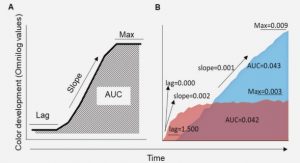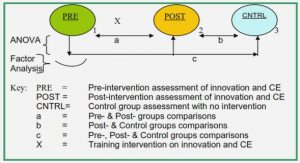Get Complete Project Material File(s) Now! »
CHAPTER 2 LITERATURE REVIEW
INTRODUCTION
This chapter discusses literature review for the study. Specifically, the literature review covers the concept Ubuntu, Ubuntu Model, nursing, student nurses, community, patients, family, professional nurses, and culture. Literature review is the critical summary of research on a topic of interest, often prepared to put research problem in context. Literature review helps researchers to determine how best to contribute to the existing base of evidence (Polit & Beck 2008:106). More importantly, literature review helps to orientate the researcher about what is known and not known about an area of inquiry and then compare the information to the researcher’s study (Polit & Beck 2008:106). According to Burns and Grove (2009:92), literature review is an organised written presentation of what has been published on a topic by scholars and includes a presentation of research conducted in your selected field of study. By conducting a literature review, the researcher is able to determine what is known and not known about the research problem. Moreover, the researcher should conduct literature review in order to locate existing similar or related studies that can serve as basis for the study at hand (Brink 2012:52). The researcher used Ubuntu model, the cumulative Index to Nursing and Allied Health Literature (CINALHL) database, Medical Literature On-line (Medline) and the Institute for Scientific Information (ISI) to search for appropriate literature (Polit & Beck 2008:111).
The current state of nursing education training in South Africa and a gap in ethos training underpinning a humanistic/Ubuntu in the curriculum
The current state of nursing education training in South Africa in South Africa still need to be revisited looking at the state of service delivery within our health facilities today. Nurses during training are taught about ethos of nursing as a module that is appearing in their curriculum. The patients’ rights are also taught to student nurses. On completion of training the nurses are absorbed in the health services as the workforce. The trained nurses are expected to render quality nursing care to patients and respect each patient she is providing nursing care. In most of the health facilities patients are not respected. They are shouted by the very nurses that were taught ethos of nursing and patient’s right. Nurse come from different family backgrounds when they enter into nurse training programmes. They were raised in different forms. Some of the nurses were brought up without proper socialization about respect to other human being. Hence, ethos of nursing need to be combined with Ubuntu philosophy to be able to bring in change of a nurse and bring in respect, empathy and sympathy to patients. Ubuntu philosophy can be facilitated as a short course on entry into training programmes and also incorporated during facilitation of ethos of Nursing and social science subjects.
The impact of introducing short course on improving attitudes and behaviour amongst the student nurses at Limpopo College of Nursing
The nurses that enter in nurse training programmes come from different family backgrounds. They were socialised differently. According to Mulaudzi, Libster and Phiri (2009:47), Ubuntu and nursing are complementary. They both emphasise caring. A nurse with Ubuntu will have respect, sympathy, empathy, compassion and always ready to assist the patients and not expecting gain or complements from patients and managers. The health facilities, hospitals and clinics need nurses with Ubuntu to be able to change the situation that is being experienced by patients in our communities especially in public health facilities. Patients are provided nursing care according to their social class according to the research findings. The poor patients are the most affected because they do not have money to visit private health facilities.
The introducing of a short course on Ubuntu will empower student nurses with knowledge on Ubuntu to be able to change their attitudes and behaviour and understand that Nursing and Ubuntu complement each other. The nurses will understand that Ubuntu is a ‘‘Nguni’’ word and means that ‘‘a person is a person through others’’ (Nussbaum 2003:2). The Short course on Ubuntu will inculcate the spirit of Ubuntu and build an understanding to nurses on training that a patient is a human being who need to be respected and she need to understand that ‘‘ a patient’s pain is her pain’’ (Nussbaum 2003: 2), hence she need to have empathy to the patient and not shout at the patient when the patient need care from a nurse. The nurses guided by the principles of Ubuntu will demonstrate respect for human dignity, accepting and understanding the patient as he really is and maximising the power of the patient to control his or her own care (Mulaudzi et al 2009:48).
Short explanation on suggesting a short course on Ubuntu instead of a full course
The short course is to be facilitated during orientation of student nurses on entry into the nursing training programmes for five (5) days. The full course will need a lot of time. The short course was agreed upon during a collaborative and consensus discussion following a workshop held on the 06.07.2017 for feedback report of summary of the research findings and input of what must be included in the development of the short course. The stakeholders which were the Vice principals, the managers of hospitals and clinics that were present in the workshop agreed that the short course will be slotted in the programme during orientation of student on entry into student nurse training programmes. This will ensure sustainability of the shrt course.
UBUNTU – HUMANITY
Explanations of the concept Ubuntu
Ubuntu is an ancient African worldview based on the primary values of intense humanness, caring, sharing, respect, compassion and associated values, ensuring a happy and qualitative human community life in the spirit of a family (Broodryk 2006a:2; Gade 2012:485). Manda (2009:3) defines Ubuntu as one of the African approaches of understanding the humanity as a process of building cohesion and humanness when it comes to philosophical dimensions, which will allow grasping its foundation being based on the emphasis of promotion of ethics for the humanity. Ubuntu is derived from a Nguni (IsiZulu) aphorism: Umuntu Ngumuntu Ngabantu, which can be loosely translated as ‘‘a person is a person because of or through others’’. Ubuntu is also described as the capacity in an African culture to express compassion, reciprocity, dignity, humanity and mutuality in the interests of building and maintaining communities with justice and mutual caring (Bamford 2007:85). Kehoe (1997:3) mentions that the term Ubuntu is derived from the word ‘‘muntu’’ meaning a person or a human being. Kehoe (1997:3) further mentions that according to African traditional wisdom, each individual possesses positive loving qualities and these qualities represent our natural internal state of being,and when we express them, we are being human beings. The values of Ubuntu are expressed in good deeds, being sensitive to the needs of others, being compassionate, forgiving, caring, and generous. Kehoe (1997:4) further asks the following questions regarding Ubuntu: Do we practice Ubuntu, do we live in harmony with ourselves and others. Therefore, Ubuntu forces us to introspect our actions and to see if they match our values. Ubuntu is measured in actions and not just good intentions.
According to Mulaudzi et al (2009:46) and Dolamo (2014b:6), Ubuntu is both a philosophy and way of life. It is a distinctive African cosmological system of teaching each individual to appreciate and enjoy their life while caring, sharing and respecting others. Gade (2012:484) supports this when he indicated that Ubuntu is a moral quality of a person according to which persons are interconnected. The behaviour of an individual is determined by a social system. Gade (2012:484) further indicates that the upbringing of a child is rooted in the philosophy known as Ubuntu. Essentially, Ubuntu acknowledges the practical and conceptual interdependence of persons taking relationships, rather than properties, as fundamental. Therefore, understanding Ubuntu seems to require an appreciation of its connection to and relevance for notions of self, urgency and personal identity (Chibba 2013:3).
Ubuntu is characterised by respect, professional maturity, cultural sensitivity, solidarity, empathy, and caring for others. The future nurse leaders should embody ethical principles, be realistic and technically savvy. Such leaders should be influential and be able to motivate and inspire, possess the gift of superb communication, be transformational, and practice liberational governance (Dolamo 2014b:2). According to Nussbam (2003:3), the general principles of Ubuntu are as follows:
Listening to and affirming others with the help of processes that create trust, fairness, shared understanding, dignity and harmony in relationships.
Desire to build a caring, sustainable, and just response to the community.
Humanity and ethical call to embody our communal responsiveness in the world.
Sharing wealth and making basic services such as food, housing, and access to health and education accessible and visible to all members of our global community.
It is through others that one attains selfhood. Ubuntu is interconnected with self and community. A person needs other human beings in order for them to be human. Ubuntu sees community rather than self-determination as the essential aspect of personhood. Moreover, people are able to recognise and acknowledge one another through mutual encounter and cultural integration (Nussbam 2003:4).
According to Makhele and Mulaudzi (2012:109), Ubuntu plays an important role among the nursing personnel as it is indicated in the study conducted in Bophirima District in North West Province where the hospitals were overwhelmed by high number of HIV positive patients. The HIV patients were not well cared. Their emotional beings were not considered as Ubuntu philosophy was not considered when rendering nursing care. Patients were sent to Hospice care for recovery since caring was compromised and nurses were not considering the fact that Ubuntu and caring are the basics to be considered when rendering nursing care. Mchunu (2004:84) and Downing and Hastings-Tolsma (2016:216) concur with the above assertion. They pointed out that Ubuntu abounds with values such as love, compassion, peace but today this is plagued by poverty, HIV/AIDS, individualism, and globalisation and other current socio-political ills.
Understanding Ubuntu requires an appreciation of its connection to notions of self, agency, and personal identity, as well as notions of humanity, dignity and respect and the complex interplay between these on a cultural level. The person should be able to respect others and have dignity to be able to be respected and be said to be having Ubuntu. Humanness finds more moral tone as respect and dignity (Bamford 2007:85). According to Metz and Gaie (2010:274) and Engelbrecht and Kasiram (2012:441), a person has to develop one’s humanness by communing with those who have dignity in virtue of their capacity of communing. It is further indicated that communal nature is the inherent capacity to exhibit identity and solidarity with others. Bimray and Jooste (2014:197) and support this when they indicate that nurse practitioners have to comply with professional values that require nurses to base their practice on relevant and current knowledge and to show respect for the well-being, dignity, and autonomy of persons who receive their care. Netshitomboni (1998:16) and Mnyongani (2010:142) allude that the Constitution of the country seeks to promote Ubuntu as a constitutional value because it is striving to ensure that all the people of the country are respected and treated equally. The constitution is grounded on Ubuntu. It provides protection of people’s legitimate expectations and function according to policies of the country which are embedded on Ubuntu.
CHAPTER 1 ORIENTATION TO THE STUDY
1.1 INTRODUCTION
1.2 BACKGROUND INFORMATION ABOUT THE RESEARCH PROBLEM
1.4 AIM THE STUDY
1.5 SIGNIFICANCE OF THE STUDY
1.6 THEORETICAL FRAMEWORK OF THE STUDY .
1.7 DEFINITION OF CONCEPTS
1.8 RESEARCH APPROACH AND RESEARCH DESIGN
1.9 VALIDITY AND RELIABILITY OF THE QUANTITATIVE APPROACH
1.10 DATA MANAGEMENT AND ANALYSIS
1.11 SCOPE AND LIMITATIONS
1.12 LAYOUT OF THE STUDY
1.13 CONCLUSION
CHAPTER 2 LITERATURE REVIEW
2.1 INTRODUCTION
2.2 UBUNTU – HUMANITY
2.3 THEORETICAL FRAMEWORK
2.4 NURSING
2.5 STUDENT NURSES
2.6 COMMUNITY
2.7 PATIENT
2.8 FAMILY
2.9 PROFESSIONAL NURSE/REGISTERED NURSE
2.10 CULTURE
2.11 CONCLUSION
CHAPTER 3 RESEARCH DESIGN AND METHODOLOGY
3.1 INTRODUCTION
3.2 THE RESEARCH SETTING
3.3 RESEARCH METHODOLOGY
3.4 MEASURES TO ENSURE TRUSTWORTHINESS IN QUALITATIVE STUDY
3.5 DATA ANALYSIS
3.6 ETHICAL CONSIDERATIONS .
3.7 CONCLUSION
CHAPTER 4 PRESENTATION AND DISCUSSION OF FINDINGS
4.1 INTRODUCTION
4.2 PHASES OF RESEARCH FINDINGS
4.3 PHASE 2: QUALITATIVE RESULTS
4.5 SUMMARY OF QUALITATIVE FINDINGS
4.6 CONCLUSION
CHAPTER 5 .DEVELOPMENT OF A SHORT COURSE TO INCULCATE THE SPIRIT OF UBUNTU AMONG THE STUDENT NURSES AT LIMPOPO COLLEGE OF NURSING .
5.1 INTRODUCTION .
5.2 SHORT COURSE DEVELOPMENT PROCESS
5.3 CONCLUSION
CHAPTER 6 CONCLUSIONS, RECOMMENDATIONS AND LIMITATIONS OF THE STUDY
6.1 INTRODUCTION
6.2 PURPOSE AND OBJECTIVES OF THE STUDY
6.3 RESEARCH DESIGN AND METHODS
6.4 THEORETICAL FRAMEWORK OF THE STUDY
6.5 CONCLUSIONS FOR EACH PHASE OF THE STUDY
6.6 RECOMMENDATIONS
6.7 LIMITATIONS OF THE STUDY
6.8 CONCLUDING REMARKS
LIST OF REFERENCES
GET THE COMPLETE PROJECT






